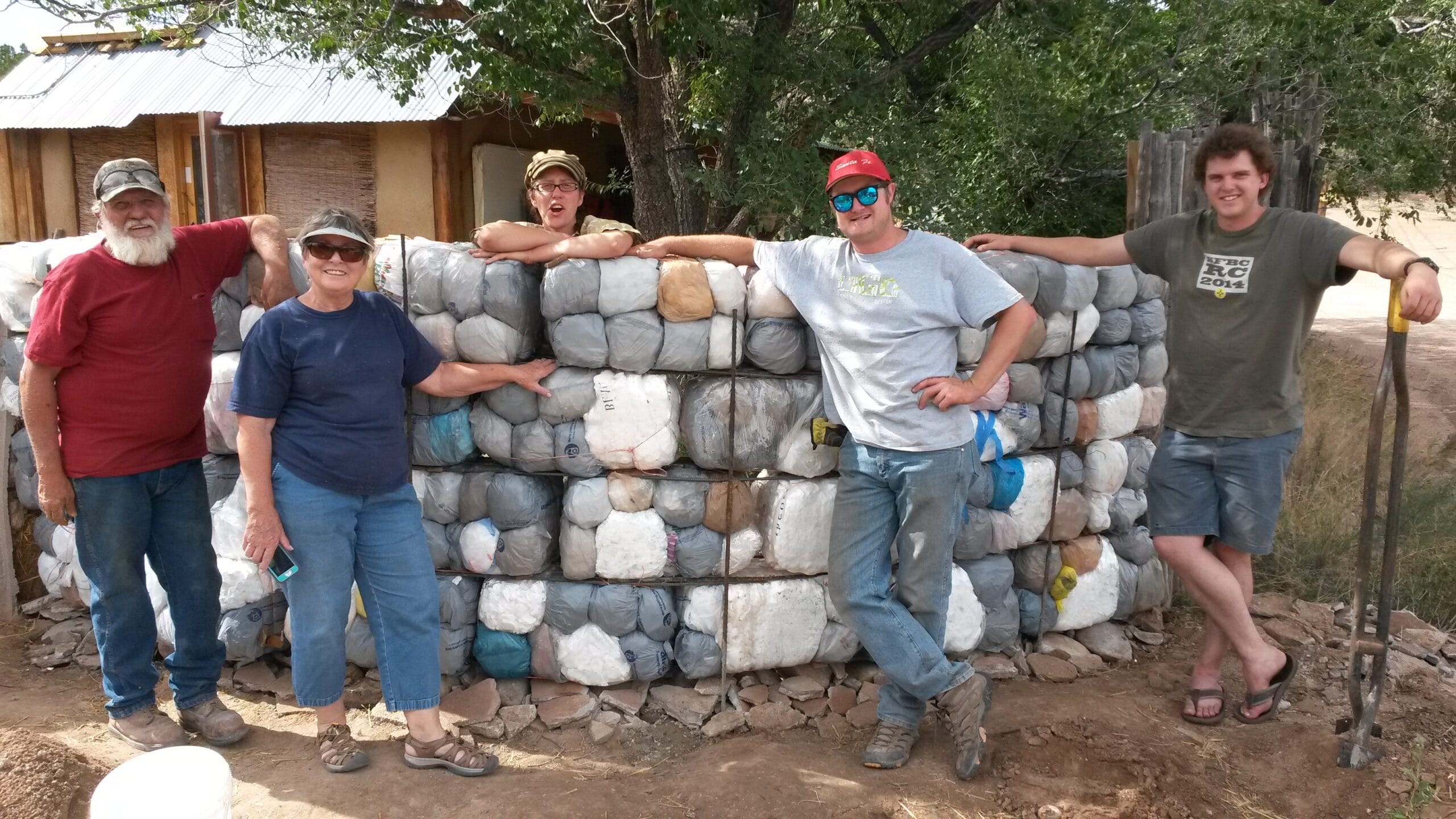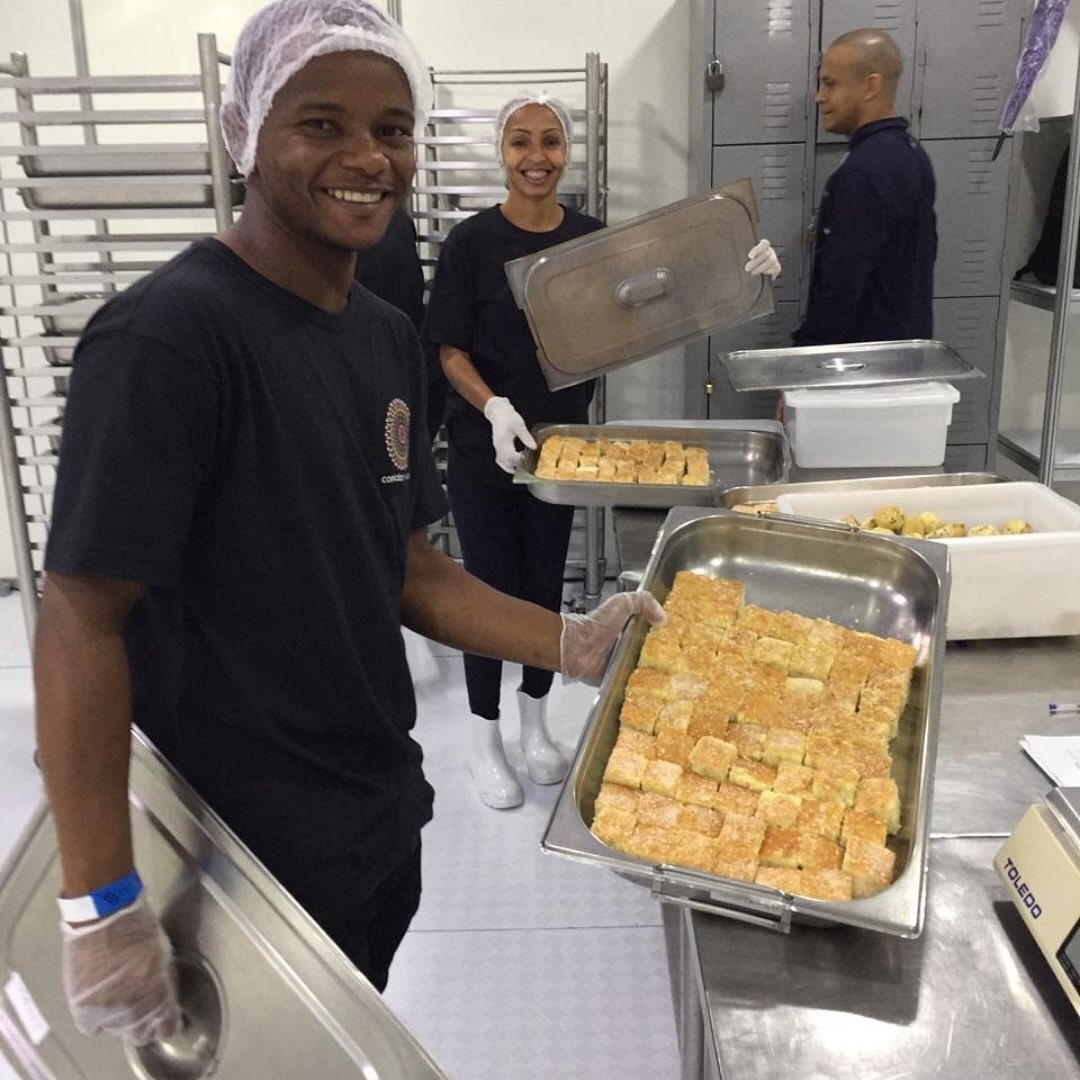For some people, the waste their business produces is an issue to be dealt with. For others, that same material is a key ingredient and an opportunity to create something else, something useful.
In a world where the waste from what we consume has become a major issue, polluting our air, land, and water, and therefore affecting so many other species, being smart and creative about moving away from a linear economy based on making, using, and disposing to a circular one, where resources are continually transformed and regenerated, is key – and urgent – in order to reach a social, ecological and economic balance.
Let’s meet some initiatives that are showcasing how to make things better for everyone, including our planet:

1. Emiliana Underwear
Alarmed by the fashion industry – and how unsustainable the business models, products, and manufacturing processes are, Emma Kidd founded Emiliana Underwear in order to produce beautiful, ethical, and handmade underwear as well as camisoles by upcycling clothes and fabrics. The initiative rescues a lot of material that would otherwise be taken to landfill, and instead, trim them with stretch lace, ribbons and bows, transforming the fabric into attractive and comfortable lingerie.
The project also offers kits and workshops, so that people who are new to the world of sewing can make their own underclothes, developing a new skill whilst avoiding a considerable amount of waste.
For more information about these happy knickers, click here.

-
Upcycle Santa Fe
Using the power of education, Upcycle Santa Fe is an organization in the US set out to research, develop and share “open-source solutions for the plastic waste dilemma.” And the way they do it is by utilizing and upcycling plastic waste, and transforming it into a useful and durable building and insulating materials.
Highlighting the need for small-scale grassroots and local-based approaches to waste management, the organization collects and creates Ecobricks, which are simply water bottles (or milk cartons) stuffed with clean and dry plastic waste that can be used to build and insulate constructions.
And as an option for thicker insulation, the project creates what’s called Ubuntu-Blox, which are compressed bales of bagged post-consumer plastic and styrofoam waste. Such options offer an opportunity to convert a lot of material that otherwise would be wasted into something useful as well as affordable.

-
Comida Invisível (Invisible Food)
Comida Invisível is a digital platform that brings together those who have good food to donate with those who need it, easily and practically.
This service, in Brazil, acts as a direct bridge between restaurants, supermarkets, hotels, and bars with Individuals and the third sector to facilitate the donation of food unsuitable for trade, but suitable for consumption, supporting a lot of people in need, and avoiding a great deal of waste. Such an initiative can be also described as the ‘Brazilian hub for solutions to avoid food waste through education and awareness-raising’.
Throughout the pandemic, the initiative has partnered with an innovative platform called +Brasil to support people to buy different kits of subsidized food and hygienic products to be donated to those who are most vulnerable.

-
THE ReSTORE Dartington
Intending to rediscover, recreate and rejuvenate furniture and furnishings items that are donated, THE ReSTORE Dartington is a project set up by and managed by the not-for-profit Refurnish, in England, that makes the most of skillful volunteers and upcycling artists – and their creativity. In doing so, the initiative helps people learn and develop skills whilst diverting a lot of waste that would otherwise go to landfill.
After repairing and improving items of furniture, the social enterprise sells the products in the shop attached to its workshop. The initiative also runs a series of skillshare sessions as well as a monthly Repair Café, which had to be paused throughout the pandemic, and instead, they are offering a repair service for household and electrical items on a donation basis.

-
RUCO – Repurpose Used Cooking Oil
Set out to advocate for and educate people on healthy eating, the Food Safety and Standards Authority of India (FSSAI) launched RUCO, an initiative that facilitates the responsible disposal of used cooking oil, which when discarded down the sink or toilet, can make the treatment of the water impossible, and when used repeatedly, it can be harmful to human health.
India is one of the world’s largest consumers of vegetable oil, and whilst supporting households, FSSAI has also been regulating restaurants and hotels, to do the same, collecting the used frying oil and converting it into biodiesel, also known as ‘green diesel’.

-
The Repurpose Project
Keen to “innovate a reuse economy that helps our planet and protects our future,” The Repurpose Project is a US not-for-profit community initiative that saves and diverts useful items and products from landfill, whilst raising awareness about reducing waste and the circular economy solutions, through educational workshops.
Such projects include a Reuse Shop, which is known as a ‘junk shop’, since it sells a variety of random and overlooked items; a Zero Waste Initiative, which supports schools and businesses to rethink – and reuse – waste; and a Community Centre to host spaces focused on community and planet’s wellbeing.

-
GroCycle
Aiming to teach people how to grow mushrooms in an easy, fun and low-tech way, GroCycle is a UK social enterprise that among a number of techniques uses coffee grounds to grow gourmet oyster mushrooms in a way that is more straightforward than traditional mushroom cultivation, whilst affecting a considerable waste stream.
Bearing in mind that more than 9 billion kilos of coffee beans are produced each year globally, the initiative uses coffee waste generated by British coffeehouse chains as the main material to cultivate mushrooms.
The figures are impressive: Since 2011, when they started, the project has recycled more than 75,000kg of coffee grounds and turned them into more than 20 tonnes of mushrooms, always having simplicity and efficiency at the core of the processes used.
Click here for further resources, and here to watch a step-by-step video on how to grow mushrooms in coffee grounds.









